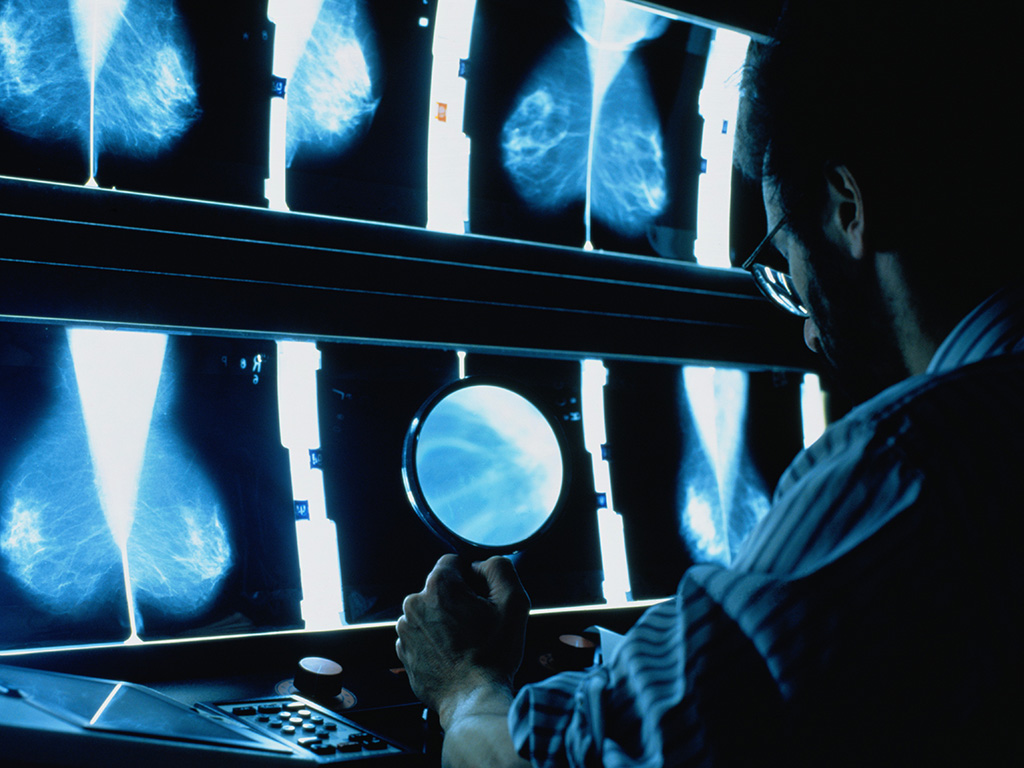If you’re a woman in your 40s, it’s possible you’ve already had a conversation about mammograms with your doctor. But for those who are wondering exactly when to start getting screened for breast cancer, one paper suggests most experts are divided on age.

In a new paper published in the JAMA Internal Medicine journal on Monday, many primary care physicians and gynecologists in the U.S. recommend annual mammograms for women between the age of 40 and 49 in 2016, CNN reports.
The American Congress of Obstetricians and Gynecologists recommends annual mammograms starting at the age of 40, while other U.S.-based guidelines recommend mammograms every two years starting at the age of 50.
“Different professional societies and organizations continue to disagree over the optimal time to initiate and discontinue breast cancer screening mammography and the optimal screening interval,” researchers wrote in the paper.
READ MORE: World Cancer Day: Important cancer screening tests and when you should get them
Guidelines in Canada
The Canadian Cancer Society recommends women between the ages of 40 to 49 to talk to their doctors about the benefits and risks of mammography, and have a mammogram every two years starting at 50.
If you are 70 or older, speak to your doctor about how often you need to be screened. One 2016 study found women in their 70s should keep getting screenings until the age of 90.
The Canadian Task Force On Preventive Care recommends routine screenings every two to three years for women aged 50 to 59. They do not recommend routine screenings for women under 49.
Dr. Linda Rabeneck, vice president of prevention and cancer control at Cancer Care Ontario, says there could be a division among age brackets based on the groups you are speaking with.
Individuals, for example, who had an early diagnosis would say screenings in your 40s is a good thing, while scientific evidence usually looks at the general benefits and risks of women in several age groups as a whole.
READ MORE: Mammograms may detect heart disease; typical heart patients getting younger
Divided health care professionals
The paper looked at data from 871 health professionals in the U.S., who recommended mammograms between May and September 2016. The paper found 81 per cent of these physicians recommended screenings for women between the ages of 40 to 44, and 88 per cent for women 45 to 49. Sixty-seven per cent of physicians recommended screenings for women 75 and older.
“Our results serve as a benchmark for breast cancer screening recommendations as guidelines continue to evolve,” Dr. Archana Radhakrishnan, a researcher at Johns Hopkins Medicine in Baltimore, told CNN.
“Despite changes to guidelines, doctors are continuing to recommend routine mammograms to both younger and older women,” she continued. “The recommendations varied depending on physician specialty; gynecologists were the most likely to recommend screening.”
The mammogram experience
The mammogram is an x-ray of the breast and is the most reliable method of finding breast cancer. Women who are at high risk for getting the disease are told to get screenings at a younger age.
During the screenings, doctors place breasts between two plastic plates. The plates are pressed together to flatten them. And while this may be a little uncomfortable, the Canadian Cancer Society says the procedure is only a few seconds.

The benefit of getting a mammogram includes catching potential cancers early on, but the society also notes there are some risks involved.
A mammogram could lead to false positive results (a false diagnosis of cancer), a false negative result (not catching the cancer) or an over-diagnosis.
What you can do for breast health
Rabeneck says on a personal level, there are several things women in any age group could do to be more “breast aware.”
If you have a history of breast cancer, talk to your family doctor about potentially getting screened before the recommended age bracket. In Ontario, she adds, women who are at high risk can get a mammogram starting at the age of 30.
READ MORE: Think you’re too old for a mammogram? Keep screening even in your 70s: study
“Of course if you notice any changes in your breasts, any lumps or discharge from the nipples, talk to your doctor,” she says.






Comments